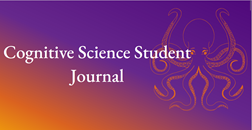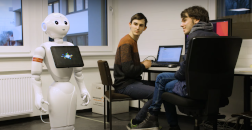Weiterführende Informationen
Top content

"Meet the Locals": A Collaboration Between Science and Industry
While everyone knows the big tech companies, many students are unaware of the exciting opportunities available here in the Osnabrück region. As part of the event series "Meet the Locals," regional companies present their fields of activity and provide valuable insights into how the skills learned in cognitive science are applied in practice.
The lecture series has generated significant interest among both students and companies. Dr. Tobias Thelen, the instructor, knows that many companies have already come to appreciate the skills of our graduates and are actively seeking new talents.
The students are not just passive listeners; they have the opportunity to ask questions and develop their own ideas for potential applications. This not only enhances their understanding of practical work but also opens up valuable career prospects within the regional economy and beyond. We look forward to a successful collaboration!

Extension: Master applications for summer term 2025
Dear prospective Master students,
The national application deadline for the summer term 2025 has been extended until March 10, 2025. We are looking forward to your applications.
For further information about the application procedure, please click here.
For Prospective Students:
Cognitive Science Student Journal
The Cognitive Science Student Journal publishes student works from all disciplines of Cognitive Science. In the Kaleidoscience Podcast students get a chance to talk about their own ideas and projects.
Bachelor Cognitive Science
This program is designed for you to explore the different fields within Cognitive Science, all while building a solid foundation in the core areas of Artificial Intelligence, Cognitive Modelling, Computational Linguistics, Neurobiology, Neuroinformatics, Neuroscience, Philosophy of Mind.
Master Cognitive Science
This Master Program allows you to refine your knowledge in Cognitive Psychology, Artificial Intelligence, Linguistics and Computational Linguistics, Neuroinformatics and Robotics, Neuroscience, and Philosophy of Mind and Cognition. You will build on your research skills through lab rotations, a year-long study project, and your master's thesis.
Master Cognitive Computing
The Cognitive Computing Program specializes in studying computational models of cognitive abilities. This course addresses working professionals who will continue to work in parallel to their studies. Graduates of this program are able to use their acquired skills for the development of innovative intelligent systems and services.






